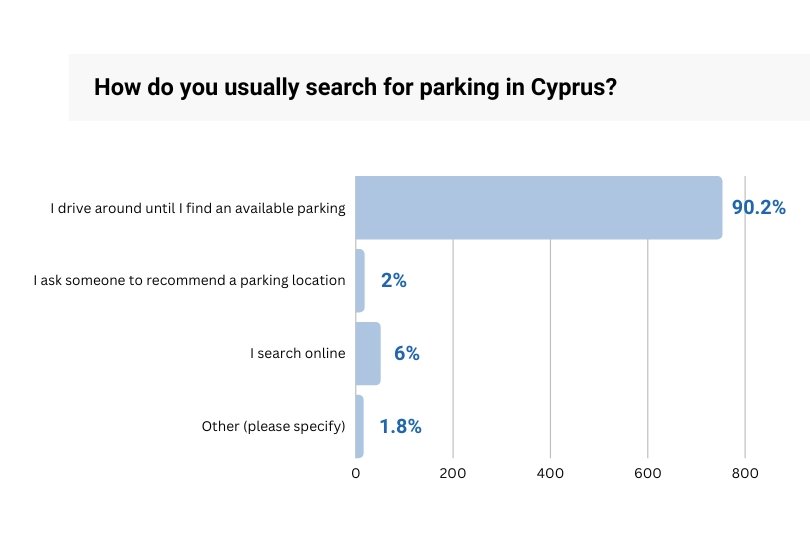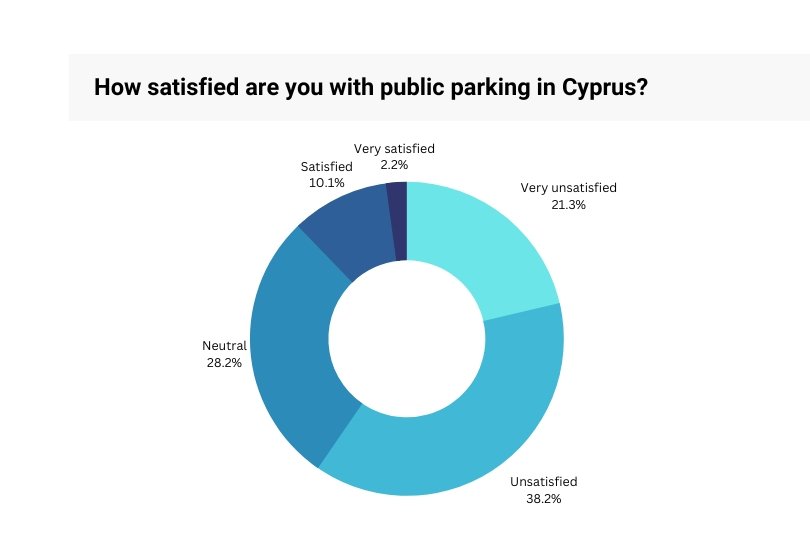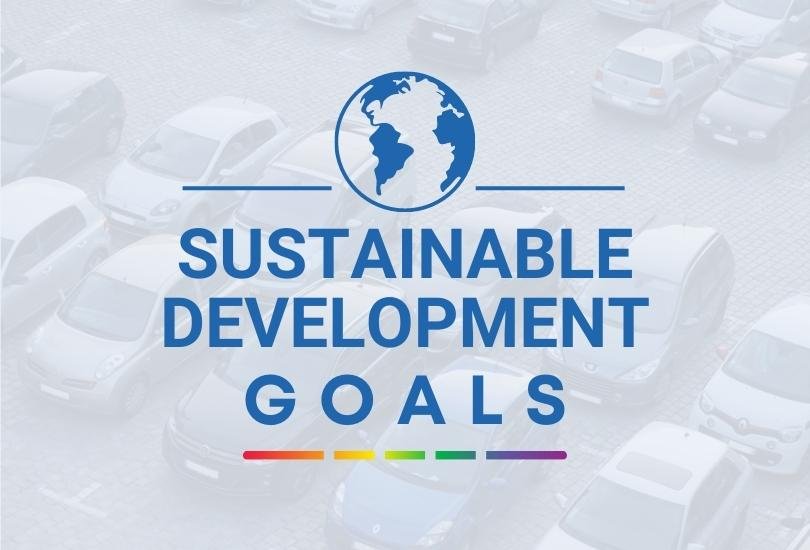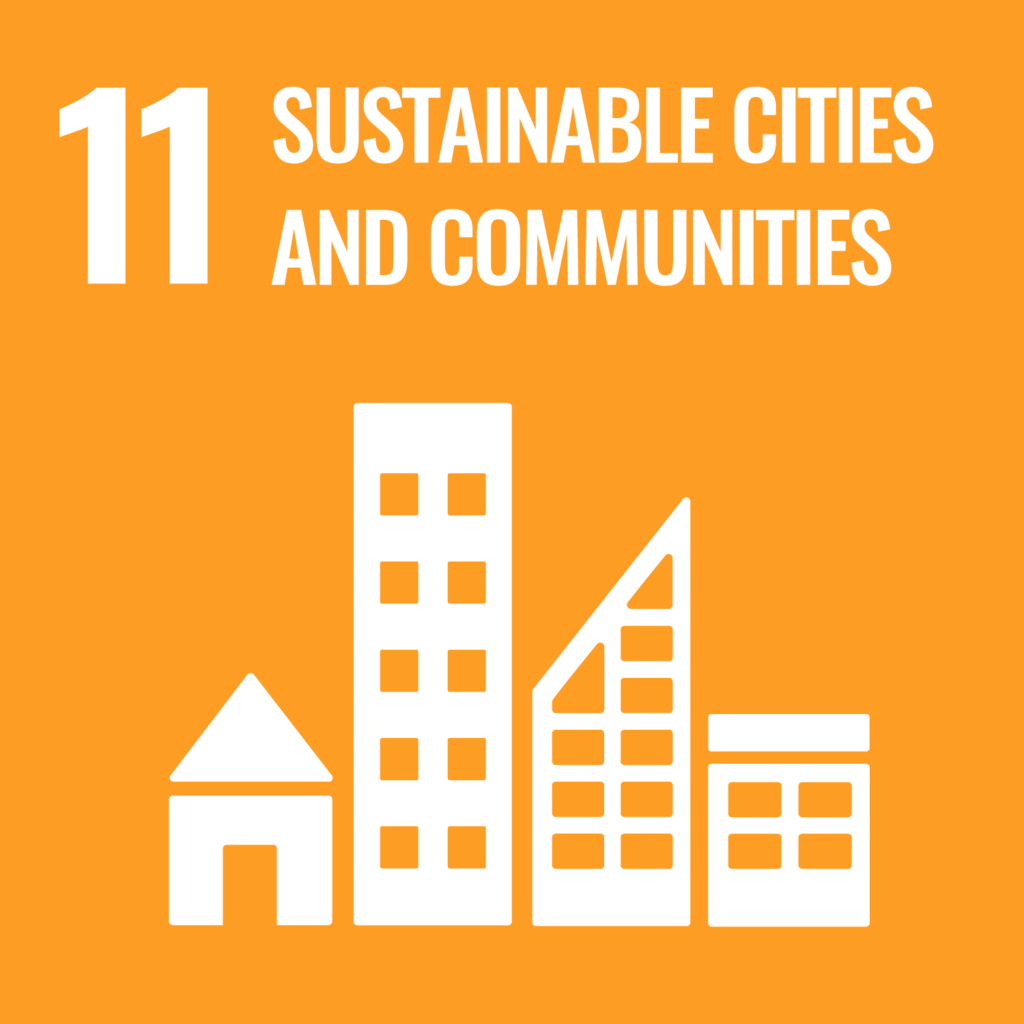
The citizens’ perspective on parking management in Cyprus.
In October 2022, uPark surveyed 1,000 drivers from Cyprus to understand their perspective on parking management in the country.
- 94% of drivers think that public parking can be managed better in Cyprus.
- Almost 40% admitted parking illegally when they can’t find a convenient legal parking space
- More than 30% of drivers don’t pay for parking if the only accepted method is cash
According to worldometers, the population of Cyprus today is 1.22 million residents. With a further increase of 10% between 2010 and 2021 alone, the indication is that it will continue to grow. Aside from the excellent living and working conditions, the favorable tax regime and other government schemes have ensured a steady influx of foreign investments and companies choosing Cyprus for their operational headquarters.
While all these factors benefit the island’s financial system, they bring a growing demand for housing. With an estimated 66,8% of the population residing in the country’s urban areas, such rapid population growth puts a tremendous strain on the infrastructure of key cities on the island.
Furthermore, according to Statista, the average number of cars per 1,000 residents in Cyprus was estimated at 629 in 2018. Putting the statistics together, this means an estimated 767,380 vehicles in total. With the rapid population growth, the symptoms of inadequate planning can become apparent very quickly.
While this impacts many city infrastructure areas, we focused more on traffic and parking facilities. To no surprise, the lengthy traffic jams and growing difficulty in finding parking spaces are already a part of our daily lives. This has become a significant headache not only for the residents who live and reside in the island’s urban areas but also for the public authorities responsible for monitoring and managing this situation.
About the survey
This survey aimed to acquire market data to substantiate the smart parking solution created by uPark and validate the problems it solves in the market.
To capture and evaluate data and the opinions of resident drivers of Cyprus, we looked into the following:
- Drivers’ demographic profile
- Drivers’ parking behaviour
- Parking knowledge
- Parking experience
- Parking-related preferences
Despite the proximity of amenities and points of interest in Cyprus, the car remains the most popular means of commuting among the residents of Cyprus.
95.3% of drivers in Cyprus confirmed that they chose a car for traveling purposes on the island.
This metric is no surprise, given the relatively poor infrastructure in terms of public transport and the lack of supporting infrastructure for greener means of transportation (only 0.4% of responders chose public transport, and 0.3% a bicycle).

Most drivers in Cyprus tend to drive around until they can locate an available parking spot.
90.2% of respondents admitted that they drive around to find an available parking spot, with the majority (45.2%) spending between 5-10 min to do so.
From this statistic, we can further derive that a citizen of Cyprus who works in the city and travels to work by car five days a week will lose between 20 and 40 hours annually on average simply searching for parking.
According to a study done by The San Francisco Municipal Transportation Agency (SFMTA), it is estimated that CO2 emissions could be reduced by as far as 30% by reducing the time spent by drivers during a search for available parking.

Most Cyprus resident drivers feel that the current provision of public parking spaces is inadequate.
Almost 60% of respondents are unsatisfied with public parking in Cyprus, claiming that:
“People parked everywhere and don’t respect the parking restrictions.”
“Not enough parking areas in the downtown areas or too expensive.”
“Not monitored, people park wherever they want, not covered.”

Read the full report to discover:
- Drivers’ top parking priorities and challenges
- Their current parking behaviors and preferences
- And more






